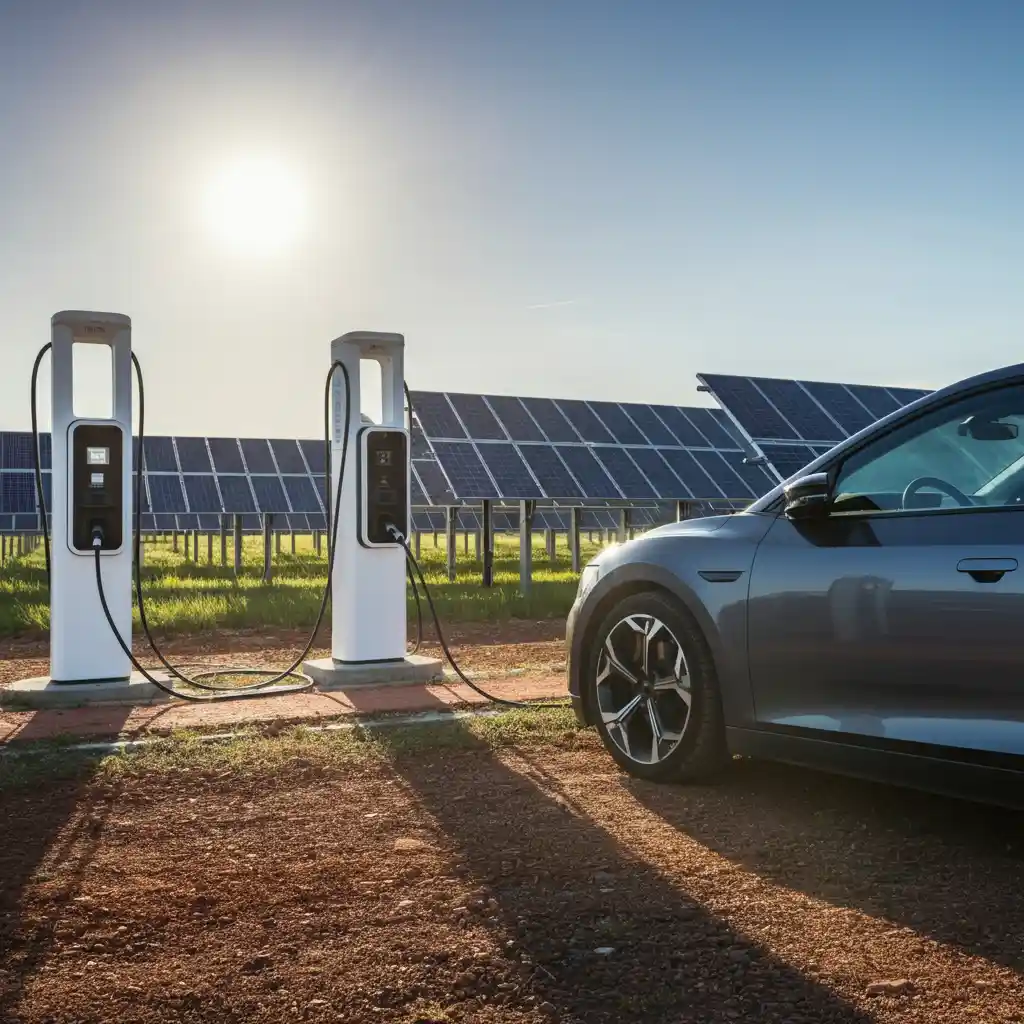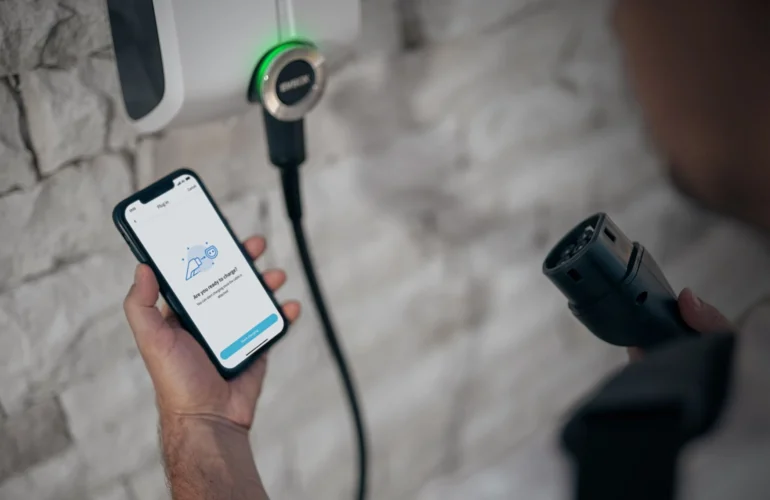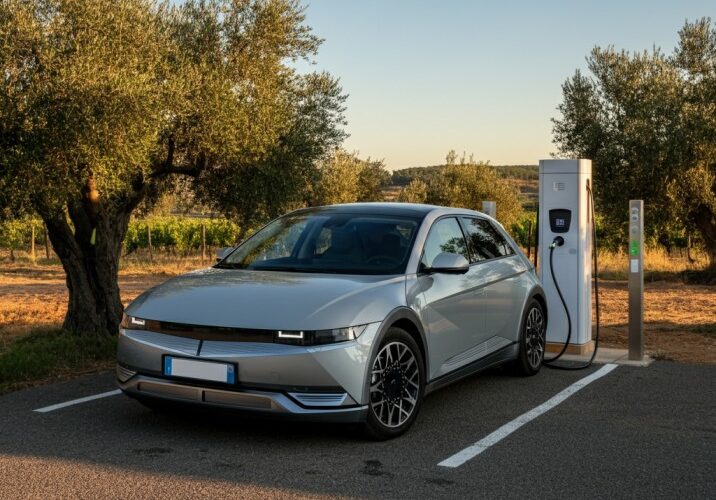Introduction: Can Solar Panels Be Used to Charge Electric Vehicles?
As more people make the shift to electric vehicles (EVs), the demand for sustainable energy sources like solar power continues to rise. If you’re considering a solar-powered solution for your electric car in the Algarve, Portugal, you’re likely wondering: Can solar panels be used to charge electric vehicles? The short answer is yes, solar panels for electric vehicles can indeed charge your electric car. However, the specifics depend on a variety of factors, such as the number of solar panels, the energy consumption of your car, and how much sunlight the panels receive in your location.
In this article, we’ll explore how solar panels for electric vehicles work, how many you need to fully charge your EV, and whether solar power is a good solution for your electric car charging needs in the Algarve. This guide is tailored to international clients living in the Algarve, who may own a holiday home or rent out their property. With sunny days nearly year-round in the Algarve, solar power offers a fantastic way to power your EV sustainably.
1. How Do Solar Panels Work for Electric Vehicle Charging?
Solar panels for electric vehicles convert sunlight into electricity. This electricity can be used to power your home, appliances, and yes, your electric car. To use solar panels for electric vehicles in the Algarve, the energy produced by the panels needs to be directed through a system that connects to the car’s battery. Typically, the system includes:
- Solar panels that capture sunlight and generate electricity.
- An inverter that converts the direct current (DC) electricity from the solar panels into alternating current (AC) electricity, which is used by most home appliances and EV chargers.
- An electric car charger that takes the AC power from the inverter and converts it into DC power to charge the car’s battery.
With the Algarve’s abundant sunshine, solar energy is a viable and eco-friendly option for EV owners, helping you reduce your reliance on the grid and save on electricity bills.
2. Can You Get Solar Panels With an Electric Car Charger?
Yes, it’s entirely possible to install both solar panels for electric vehicles and an electric car charger in one integrated system. In fact, many modern solar energy systems are designed with the specific goal of powering electric vehicles.
The most common approach is to install a solar panel system on your roof, which generates electricity. Then, a dedicated EV charger is installed at your home. This charger can be linked directly to the solar panels for electric vehicles, ensuring that the energy produced by your solar panels goes directly into your electric vehicle’s battery.
For homeowners in the Algarve, this means you can power your EV with clean, renewable energy without needing to rely on traditional electricity sources. This setup reduces your carbon footprint, lowers energy costs, and ensures that your car is charged with solar energy.
3. Can You Charge an Electric Car at Home With Solar Panels?
Absolutely! Charging an electric car at home with solar panels for electric vehicles is a practical and cost-effective solution. In the Algarve, where sunlight is abundant throughout the year, solar-powered home charging systems can be especially efficient. Here’s how it works:
- Install Solar Panels: First, you’ll need to install a solar panel system on your home. The number of solar panels required will depend on the size of your electric vehicle’s battery and how much you drive.
- Add an EV Charger: A Level 2 electric vehicle charger is typically recommended for home charging. These chargers can be connected directly to the solar panels for electric vehicles, allowing the energy produced during the day to be used to charge your EV.
- Store Extra Energy: If you generate more solar energy than needed during the day, you can store excess electricity in a solar battery for use during the night when sunlight is unavailable. You can learn more about solar batteries here: Solar Battery Information.
For clients in the Algarve, where you may only be in the region for part of the year, or if you rent out your holiday home during peak seasons, solar panels for electric vehicles combined with EV charging systems provide an efficient and self-sustaining way to keep your electric vehicle powered without worrying about fluctuating energy prices.
4. Can Solar Power Charge an Electric Car?
Yes, solar power can definitely charge an electric car. The amount of solar energy needed to fully charge an EV depends on several factors, including:
- The Capacity of Your EV Battery: Larger batteries, like those in long-range EVs, require more electricity to charge fully.
- Energy Production of Your Solar Panels: The number of solar panels for electric vehicles installed on your property, and their energy output, will determine how much power you can generate.
- Sunlight Availability: In the Algarve, with more than 300 sunny days a year, solar power is a highly effective and reliable source of energy for EV charging.
For instance, a typical solar panel produces about 300 watts of power under ideal conditions. To charge a 40 kWh battery, you would need approximately 12-15 solar panels, assuming optimal sunlight exposure in the Algarve.
5. How Many Solar Panels Do You Need to Charge Your EV?
The number of solar panels for electric vehicles required to charge an electric vehicle depends on several factors:
- Battery Size: A typical electric vehicle battery ranges from 40 to 100 kWh. For example, the Nissan Leaf has a 40 kWh battery, while the Tesla Model S Long Range has a 100 kWh battery.
- Daily Driving Distance: The more you drive, the more energy you’ll need to charge your EV. For example, if you drive 30 miles per day, you’ll need to generate enough solar energy to cover that distance.
On average, a solar panel for electric vehicles produces about 250-350 watts per hour of direct sunlight. To charge a 40 kWh battery, you would need approximately 12-15 solar panels, assuming optimal sunlight exposure in the Algarve.
6. Proof of Concept: How Solar Panels Have Benefited My Clients
One of our clients in the Algarve, a German couple who own a beautiful holiday home in Albufeira, decided to install solar panels for electric vehicles along with an EV charging system. They were looking for a way to reduce their reliance on grid electricity and create a more sustainable home. After installing a 16-panel solar system and a Level 2 EV charger, they’ve been able to charge their electric car during the day and even store extra energy in a solar battery for use at night. The couple reports significant savings on energy bills, and the system has been a perfect fit for their lifestyle.
If you are looking to integrate solar panels for electric vehicles with an EV charger for your own home or holiday property, we are here to help. Get a free consultation and start your journey to a more sustainable home today.
Conclusion: Solar Panels for Electric Vehicles in the Algarve
Solar panels for electric vehicles offer an efficient and environmentally-friendly way to charge your EV in the Algarve. Whether you live here year-round or have a holiday home for rent, solar power is a reliable solution that can save you money while reducing your carbon footprint. By installing solar panels, an EV charger, and possibly a solar battery, you can enjoy the convenience of charging your car at home with clean, renewable energy.
If you’re ready to take the next step toward a solar-powered future, we invite you to learn more about solar panels or contact us for a personalized consultation.
Sources:
- “How Solar Panels Charge Electric Vehicles,” SolarPowerRocks.com
- “Understanding Solar Power for Electric Vehicles,” EnergySage.com
For more insights, you can follow us on our Instagram and Facebook pages.




